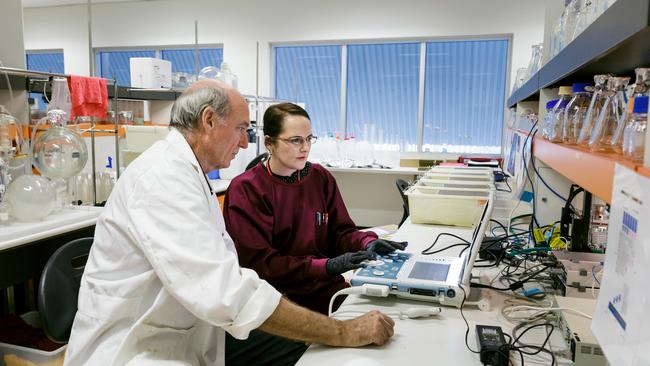Nasal spray could help treat traumatic brain injuries in military, sport
When inhaled through the nose, the drug, based on a solution known as ALM (adenosine, lidocaine and magnesium), bypasses the blood-brain barrier and directly enters the brain.

A nasal spray developed by researchers at an Australian university could help treat the “ripple effects” of traumatic injuries in the brain.
When inhaled through the nose, the drug, which is based on a solution known as ALM (adenosine, lidocaine and magnesium), bypasses the blood-brain barrier and directly enters the brain.
It could potentially speed up the healing process, James Cook University professor Geoff Dobson and his team at the university’s Heart and Trauma Research Laboratory, who developed the potential treatment, believe.
While the nasal therapy will treat mild concussion, the team, which includes Dr Hayley Letson and Dr Jodie Morris, is developing an ALM intravenous drip for more severe head knocks that cause unconsciousness.
JCU received $US613,585 from the US Department of Defence, and its Traumatic Brain Injury and Psychological Health Research Program, and the drug will now undergo human safety trials, likely in the US.
The ALM drug will first need to be produced in a US Federal Drug Administration-certified facility and if the tests are successful, it could become part of concussion management guidelines in the military, sports, pre-hospital and hospital environments.
“Imagine throwing a pebble into a pond. The pebble causes ripple effects in the water,” Professor Dobson said.
“There’s not much you can do about the pebble hitting the water and the same goes for a primary injury to the head. But what you can do is reduce the ripple effects or secondary injury progression.
“Currently, there is no effective drug that reduces these ripple effects after brain injury.”
Treating concussion quickly may also reduce complications in later life, such as chronic traumatic encephalopathy (CTE), caused by repeated head trauma, dementia, post-traumatic stress disorder and other diseases.
At last count, in 2021 to 2022, concussions accounted for 17,700 emergency department presentations. Sports, such as AFL and NRL, accounted for just over one in five concussion hospitalisations in Australia, with others caused by transport accidents and falls. There is also some evidence to indicate up to 35 per cent of military personnel deployed in the field have been affected.
Which is why the team is focused on developing an ALM intravenous drip for more severe cases. “Having a lightweight, effective treatment is a top priority for combat medics in forward environments and aeromedical retrieval services in rural and remote Australia.”
The Australian recently revealed that brain scans of nearly 20 former AFL players showed catastrophic injuries – worse in some cases than car-crash and war-related blast victims – causing neurological dysfunction ranging from depression, anger and wild mood swings to domestic violence and suicide.
Last year, it was revealed rugby league rookie Keith Titmuss had CTE when he died aged 20 – the youngest Australian sport player to be diagnosed with the fatal condition related to repeated head knocks.




To join the conversation, please log in. Don't have an account? Register
Join the conversation, you are commenting as Logout